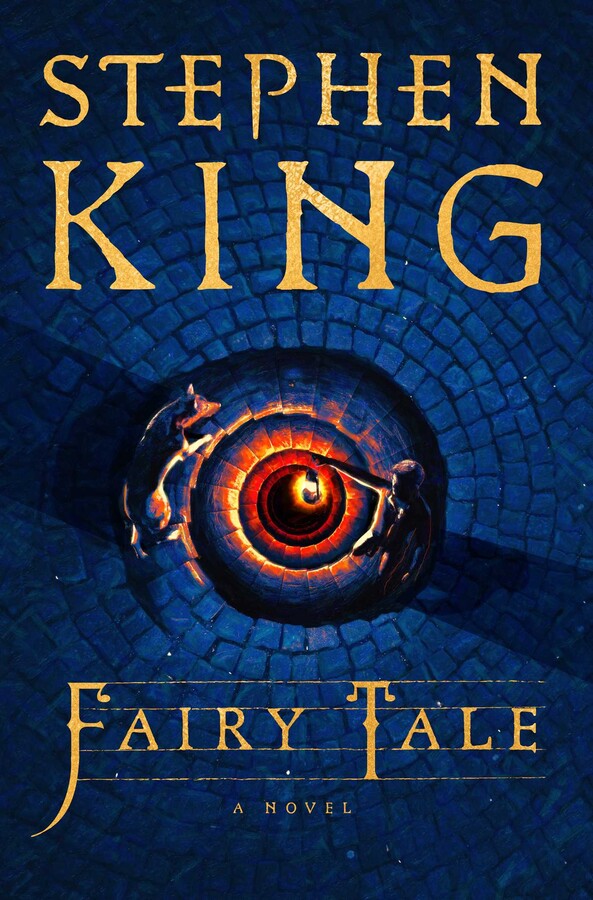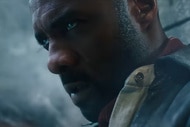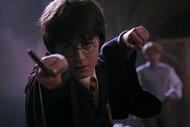Create a free profile to get unlimited access to exclusive videos, sweepstakes, and more!
'Fairy Tale' is Stephen King's most vivid exploration of the raw power of stories
Stephen King's new fantasy novel is ambitious, pure, and powerful.

Stephen King has written before about how stories can save your life. He did it most nakedly in his memoir/craft guide On Writing, but Misery is also a pretty open metaphor for the power of storytelling to get you through a hard time, and of course by the end his Dark Tower saga was deeply embedded into not just King's own wider universe of stories, but pop culture as a whole.
With Fairy Tale, King's latest novel out this week, the legendary master of horror returns to the idea that immersing yourself in stories can ultimately buoy you in your darkest hour, and this time he does it with an eye toward pure, ambitious fantasy. Like The Talisman, The Eyes of the Dragon, and The Dark Tower before it, this is King immersing himself deeply and intimately in realms of imagination, with an added sense of self-reflection and metafictional dissection which proves that, dozens of books after his debut, he still hasn't run out of things to say about the art and power of stories.
King's hero this time around is Charlie Reade, an athletic high school kid from an Illinois town who stumbles upon an amazing secret just down the street from his house. When an unlikely friendship with a reclusive old man and the old man's aging dog opens Charlie up in ways he never imagined, the boy finds that he's suddenly and inexplicably in possession of a key to a shed which contains a portal to a parallel universe. Down a long, winding staircase and through a dark tunnel, Charlie finds the entrance to a fairy tale land of princesses and magical creatures, giants and evil kings. It's a beautiful world, but it's also one in decline, and as Charlie learns more about this other place, he realizes he has to save it, not just for himself, but for his own world.
Seasoned King readers will immediately see certain hallmarks leaping out here, and not just in things like the old man with a secret or Charlie's recovering alcoholic father. The portal is an immediate reminder of 11/22/63, and the idea of a boy venturing out into a strange land is of course reminiscent of The Talisman. King's always been a traveler who likes to drop back in on familiar territory from time to time, so it's no surprise that he's done that again with this book. What sets Fairy Tale apart, though, is how deep the writer digs into not just the how of these new journeys into familiar thematic places, but the why.
When King announced Fairy Tale earlier this year, he framed it as the novel he wanted to write that would make him happy amid the COVID-19 lockdown, and shared with readers his imaginings of a fallen fantasy landscape where there just might be some life still fighting for the light somewhere. This book was, for King, not just an escape, but a grander statement on the way he saw the world in the midst of a deep crisis, and that's clear in these pages. Whether you want to see the metaphors in the ruined city of this other world, in the distorted faces of the people who populate it, or in the misshapen face of its corrupted ruler, they're all there for the taking, all there to enliven Charlie's journey and his fight to save what he can of the goodness left in this strange place.
But King doesn't just stop there. If he had, Fairy Tale would be a satisfying novel that's reflective of our current moment while simultaneously acting as an escape into something much more fanciful, but that just wasn't enough this time around. One of the secrets to King's success is the way in which he can use his prose to ground everything that happens in his story in real, tactile detail, and that's certainly present in Charlie's voice throughout the book. But one of the other, most vital secrets to King's continued prominence as a great contributor to the landscape of American fiction is the way he's able to make his stories reflective of our broader focus on stories. He's made no secret of his love of old monster movies, pulp novels, and lurid EC Comics, and he's spent quite a bit of time explaining how they helped form him as a writer. With The Dark Tower, he enveloped everything from Seven Samurai to Harry Potter in his fiction, reminding us again and again that he is part of a larger continuum of story, a player in a much bigger sandbox from which all storytellers eventually draw.
With Fairy Tale, it feels like King isn't just playing in that sandbox, but digging down into it, shoveling the sand up with each turn of the page to see the topsoil down below, and the roots beneath that, and beyond. Through his travels, Charlie begins to explore the ways in which the stories we know as fairy tales have morphed over time, the way the landscapes of them change and the fates of the characters unravel, sometimes into something safer, sometimes into something darker. He wonders if some of the great storytellers of our world may have made the journey to this other one for inspiration, for renewal, for hope. He examines the connective tissue between this world and that, and even considers that perhaps it's his world that's make-believe, an offshoot of the imaginations of the people in this other realm. All of it is classic King with a deeper, especially reflective tone. What are worlds, after all, but a collection of stories placed into a given geography? And what are stories but agreed-upon thoughtforms that we hold dear to us?
The way King asks these questions, and the way he asks them while also delivering a book you can get quickly and permanently lost in, combine to make Fairy Tale one of King's grandest narrative statements, and another must-read book from a master.
Fairy Tale is available now.
Stream the recent Stephen King adaptation Firestarter on Peacock.



























